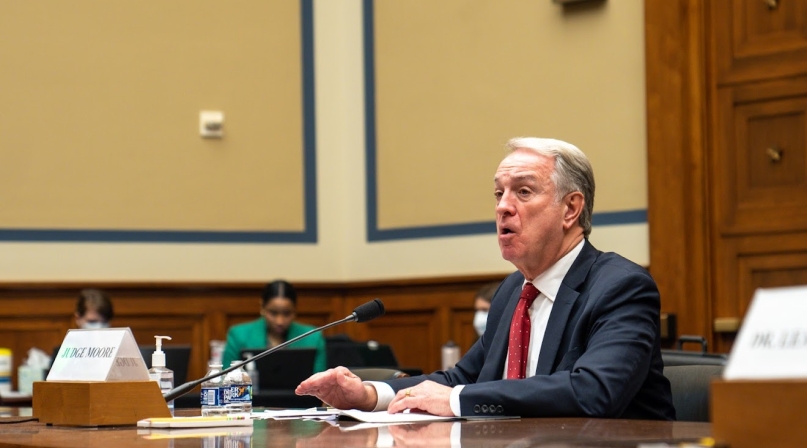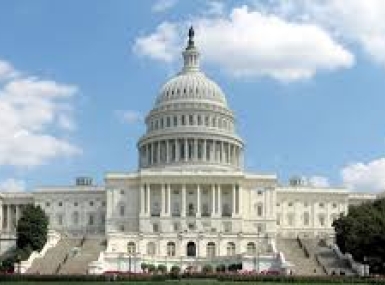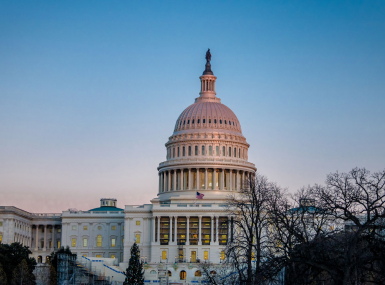American Rescue Plan hits anniversary of passage

Key Takeaways
In the year since Congress passed and President Biden signed the American Rescue Plan Act (APRA), counties have taken a hard look at how its $65.1 billion in direct funding can change their fortunes as they move past the COVID-19 pandemic.
From public health investments, wastewater upgrades, job training services, infrastructure improvements, small businesses and nonprofit support, covering revenue losses and more, counties are making detailed plans for the funding, but pulling back and looking at the overall impact of the legislation needs only two words.
“Hugely significant,” said Deb Schorr, a Lancaster County, Neb. commissioner. “We received $62 million, and our annual budget is $200 million, so that gives you an idea what this means to us.
“For a lot of projects, we had dreams, but the funding just wasn’t there.”
Among other needs, Lancaster County has used APRA funding to address a lack of community support for youth in crisis.
“Right now, we don’t have a place where kids can go that isn’t inpatient treatment,” Schorr said. “We allocated a very large portion from our human services pot to establish a youth crisis center. Now with this funding available, we’re able to take that step forward to address what we have known was a need.”
Just shy of ARPA’s March 11 anniversary, NACo Past President Gary Moore, judge/executive of Boone County, Ky., testified March 1 before the U.S. House Committee on Oversight and Reform on the impacts of the American Rescue Plan’s State and Local Fiscal Recovery Fund and counties’ commitment to the integrity of that funding.
“As the pressing challenges and needs continue to outstrip depleted resources of many counties during this unprecedented national emergency, this law recognizes counties’ vast responsibility to care for our most vulnerable residents, sick, unemployed, elderly and our youth,” Moore said. “Counties are steadfastly committed at the local level to good financial stewardship, investing these recovery funds quickly and effectively to support the health and safety of our residents and strengthen the economy. I want to add we were also supportive of guardrails for these funds since the enactment our American counties have been working hard to develop recovery fund implementation plans that will spur and equitable economic coverage across our nation.”
NACo President Larry Johnson recognized the occasion.
“For the past two years, counties have served on the front lines of our nation’s response to the pandemic, and the historic American Rescue Plan recognizes the vast responsibilities county governments fulfill,” he said. “The resources from the American Rescue Plan allow us to invest in struggling small businesses, nonprofits, infrastructure, including broadband, public health and safety, and human services, especially for those suffering from domestic violence, mental illnesses and substance use disorders.
“The American Rescue Plan’s direct, flexible aid has been instrumental in our ability to respond to the pandemic, save lives, and strengthen local and national economies. It allows us to continue to support frontline heroes – first responders, medical professionals and others working around the clock to keep our residents safe. As counties enhance our resiliency and prepare for the future, the American Rescue Plan allows us to make transformational investments in our communities. We simply would not be positioned to make these investments without the American Rescue Plan.”
In Cherokee County, Ga., APRA has funded $3.2 million for the District Attorney’s Office to hire staff to clear the backlog of cases that grew when the pandemic forced the court system to shut down or limit operations. Additionally, a $1 million allocation to Be Pro Be Proud built a mobile workforce unit to train students and citizens and $2 million in grants and loans supported small businesses.
“The American Rescue Plan Act has allowed Cherokee County the opportunity to fund projects and programs that would not have been feasible this quickly,” said Communications Director Erika Neldner. “So far, the county has allocated $11 million to specific projects listed above, as well as a housing needs study, a homeless shelter study, a community center, leased space for additional courts staff, premium pay to Cherokee Fire and Emergency Services squads, probate court premium pay, broadband expansion to the county’s main administration building and payments to unemployment.”
In Lancaster County, Neb., the county worked with the city of Lincoln, where 90 percent of county residents live, to combine more than $100 million in APRA funding and have each government focus their efforts on their strengths — the city’s workforce development efforts and the county’s human services department.
“We have a wide variety of nonprofits in our community that were struggling,” Schorr said. “They were seeing an increase in need for services with decreased revenue, their fundraisers were cancelled. We’ve tried to help fund different organizations in the human services field, everything from food insecurity to mental health to domestic violence. We set up an advisory council of people in the community, private foundation leaders, the Chamber of Commerce, the Community Foundation, the United Way. We tried to get a finger on the pulse of what was needed.”
The county has also started work on a multicultural center that will play host to several community organizations and provide space and shared professional and financial services that are crucial to their operations but had been out of reach given the fledgling finances of groups of their size.
“We know that the pandemic really hit minority populations extremely hard, so this was a way we can take that funding and help boost them up and be prepared for whatever the next challenges are.”
Moore told the Oversight Committee that the flexibility allowed by ARPA has been crucial to ensuring an even economic recovery.
“It has been wonderful gap funding for those needs in our communities that otherwise would not have been funded,” he said. “In my example, once again getting one gig of speed to every home in [Boone County] would not be happening without these funds — we found during the pandemic that connectivity was so critical. So, I do believe that it is creating jobs. It’s creating economic investment, it's supplying a need that would not have been addressed without the funds.”
Mike Leachman, vice president for state fiscal policy at the Center on Budget and Policy Priorities, emphasized the work ARPA allowed in retaining state and local government jobs and compared the nation’s economic outlook after COVID-19 to the Great Recession, when states and localities cut 450,000 jobs, most of which have not returned.
“They were effectively still in recession, and that limited the economy’s recovery,” he told the committee. “The bottom line is that unlike after the Great Recession, states, localities, territories and tribal governments are contributing to the recovery instead of constraining it and are well positioned to leave the country more prepared when the next downturn hits. In the future, policymakers should avoid the mistakes of the Great Recession’s fiscal aid response and provide enough aid to enable states and other governments to meet the needs of residents and businesses.
“With aid and multiple pandemic bills in 2020 and the American Rescue Plan,” he noted, “it’s also been a huge success, helping to make the recession the shortest on record and creating much less hardship than we otherwise would have seen.”

Attachments
Related News

U.S. Congress passes continuing resolution to fund the government until March 14, 2025
The U.S. Congress passed a second Continuing Resolution (CR) to extend federal spending and avert a government shutdown through March 14, 2025.

County Countdown – December 16, 2024
Every other week, NACo's County Countdown reviews top federal policy advocacy items with an eye towards counties and the intergovernmental partnership.

Local Workforce Stakeholders Urge Congress to Revise Workforce Reauthorization Legislation
On behalf of the nation’s counties, cities, towns and villages, NACo, the National League of Cities, and the U.S. Conference of Mayors issued the following statement regarding the bicameral draft agreement to reauthorize the Workforce Innovation and Opportunity Act, titled A Stronger Workforce for America Act:
